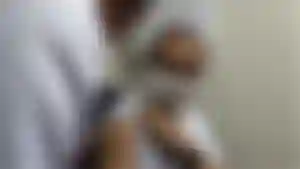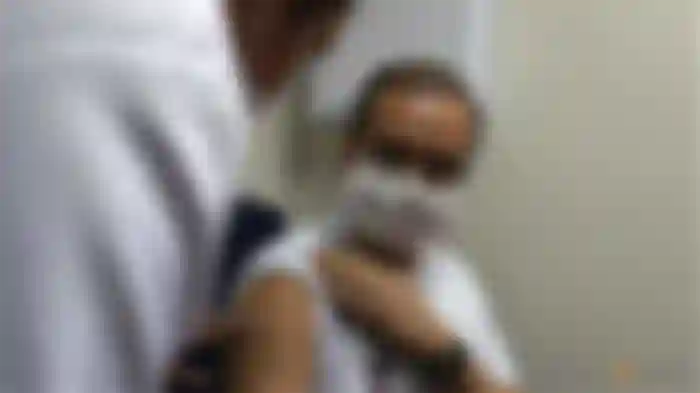
BRASILIA: Brazilian officials say they can start making COVID-19 vaccines developed by British and Chinese researchers within a year. Experts say it will take at least twice as long, leaving Brazil reliant on imports to slow the world's second-worst outbreak.
If Brazil's underfunded medical institutions are unable to meet their ambitious goals, it would mark the latest failure by President Jair Bolsonaro's government to control the virus. It would also leave Brazil vulnerable to a frenzied global scramble for vaccine supplies.
Some of the most advanced COVID-19 vaccine candidates - including from AstraZeneca in partnership with Oxford University, and China's Sinovac Biotech - are undergoing large clinical trials in Brazil, which has more than 2.7 million reported cases and almost 95,000 deaths, second only to the United States. Researchers can get results faster by testing vaccines where active virus spread is rampant.
As part of their agreements with Brazilian authorities, AstraZeneca and Sinovac have promised the federal government and the Sao Paulo state government, respectively, tens of millions of doses of their potential vaccines. They also pledged to transfer technology so Brazil can eventually produce them domestically at leading biomedical institutes Fiocruz, in Rio de Janeiro, and Butantan, in Sao Paulo.
The institutes say production of new vaccines will begin by the middle of 2021. Brazil's federal government has said it will invest 1.9 billion reais (271.8 million pounds) to process and produce the AstraZeneca vaccine.
But three experts told Reuters money alone would not be enough, saying it could take between two and 10 years for Brazil to produce COVID-19 vaccines, due to the difficulty of transferring technology and years of under-investment in the two production facilities.
"It's impossible," José Gomes Temporão, a former Brazilian health minister, said of the 2021 goal. "This takes a long time. Maybe they can accelerate a bit, but not that much."
A former head of federal health regulator Anvisa, who asked not to be named to avoid professional conflicts, also doubted Brazil could become self sufficient in a timely manner.
"A tech transfer process lasts five to 10 years, on average. When Brazil has the complete technology, a COVID-19 vaccine will probably not be necessary anymore," the ex-Anvisa head said, adding that Brazil is likely to have to purchase vaccines rather than produce them domestically, for the foreseeable future.
Brazil's Health Ministry said such predictions are premature and will depend on vaccine trial results. But officials have admitted the announced timeline may be hard to attain.
"Although it seems remote, there is a possibility of delay in the development of the vaccine," Elcio Franco, Brazil's No 2 public health official, told reporters on Monday.
Sao Paulo's state government, Fiocruz, Butantan, AstraZeneca and Sinovac did not respond to requests for comment.
EXPENSIVE GAMBLE
Brazil's state and federal governments are discussing additional late-stage coronavirus vaccine trials with US drugmaker Pfizer, China's Sinopharm Group and Russian diplomats.
But they quickly made big bets on the first two candidates to start testing in the country from AstraZeneca and Sinovac.
The Sinovac deal obliges Butantan to invest 85 million reais (US$16 million) to conduct trials of the Chinese vaccine. In exchange, the Sao Paulo government, which runs Butantan, will get enough doses to vaccinate 60 million people.
The federal government's memorandum of understanding with AstraZeneca requires it to buy 30 million doses of its still-unproven vaccine at a cost of US$97 million, even if it fails in pivotal trials. The deal gives Brazil priority to buy 70 million more doses if the vaccine works.
As part of that deal, Brazil pledged to invest 1.9 billion reais to produce the vaccine. About 1.3 billion will go toward technology transfer, and 95 million reais for updating Fiocruz facilities. The rest will be spent on processing the vaccine.
The former Anvisa chief questioned Brazil's big bet.
"I really think these agreements are too risky vis-a-vis the investment," said the source. "What will happen if the Phase III (trial) shows that these vaccines are not effective?"
Brazil's government has hedged its bets by joining the World Health Organization's COVAX initiative, which intends to guarantee fast and equitable global access to COVID-19 vaccines, and aims to deliver 2 billion doses by the end of 2021.
"The idea," said a Health Ministry source not authorized to speak publicly, "is not to put all our eggs in one basket."
